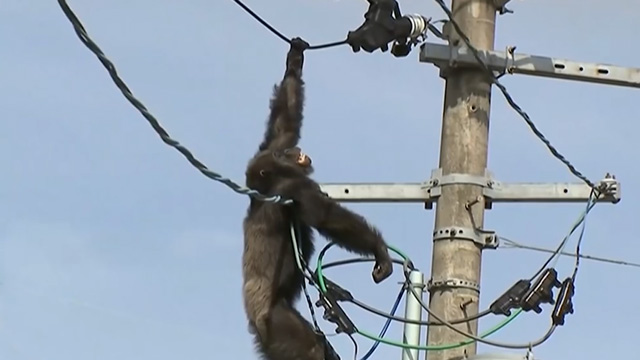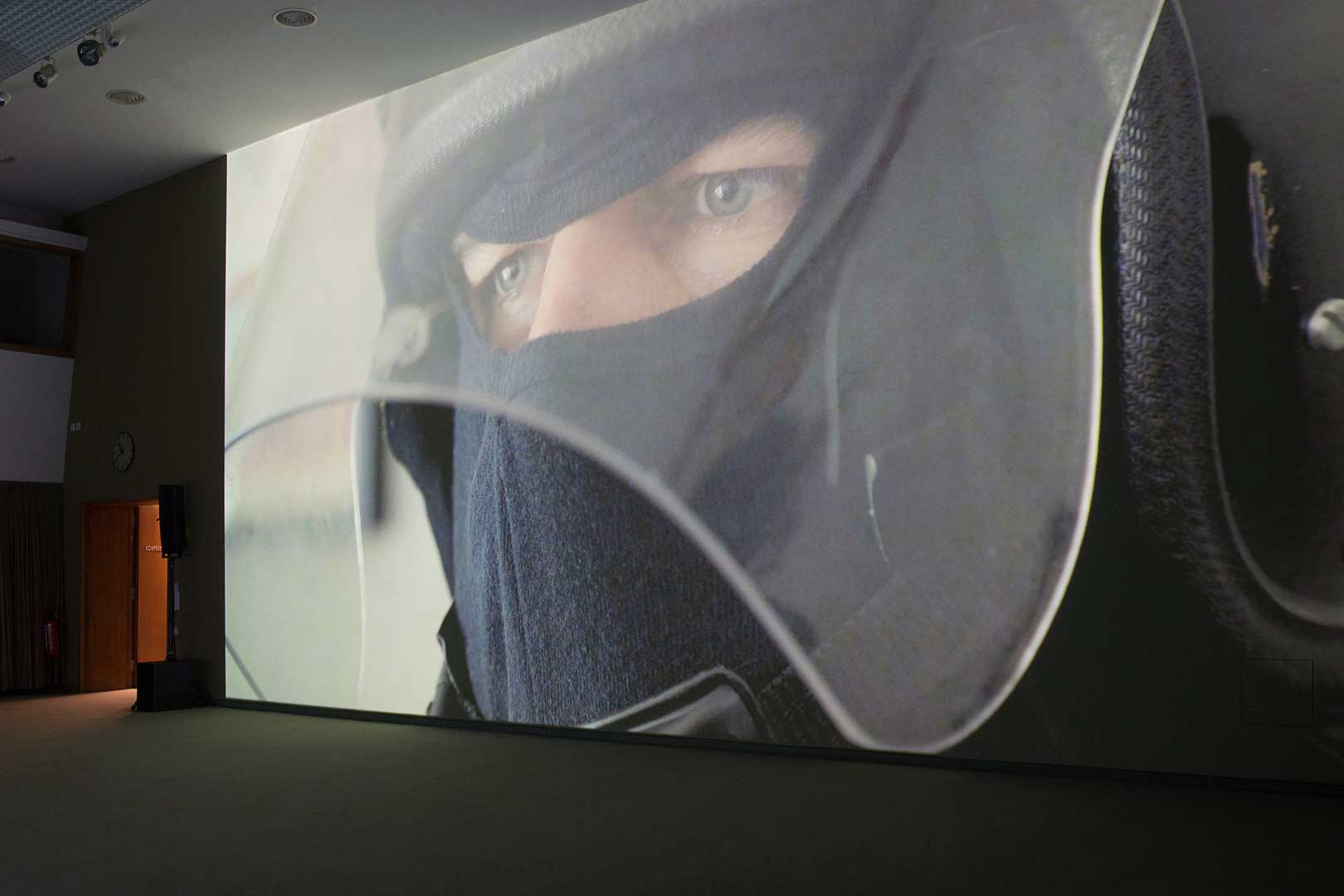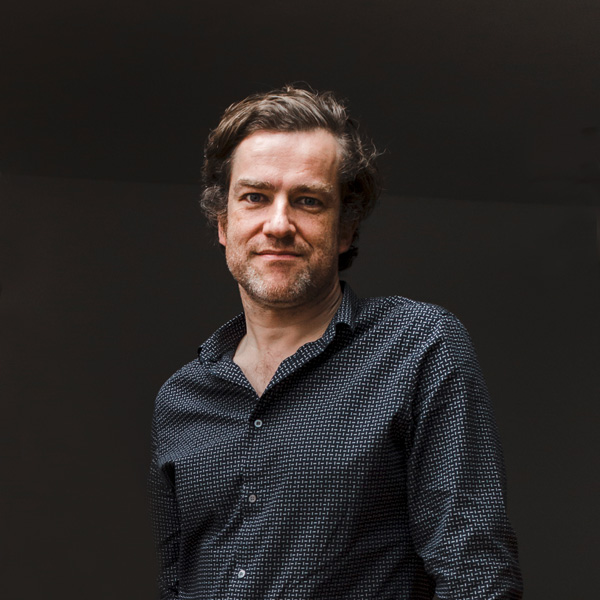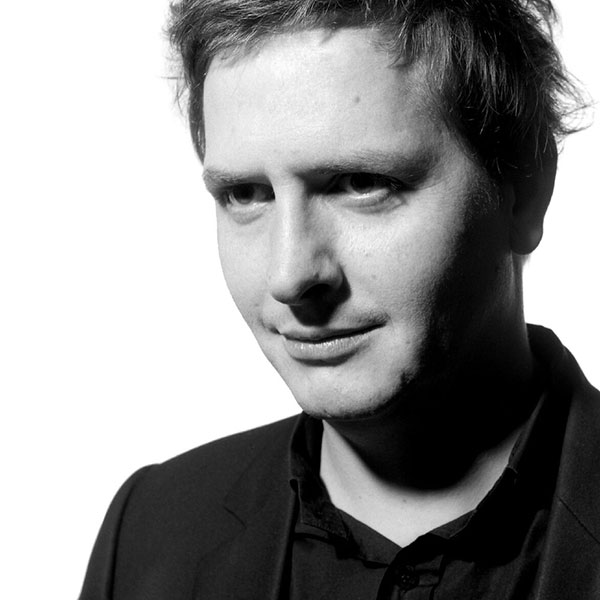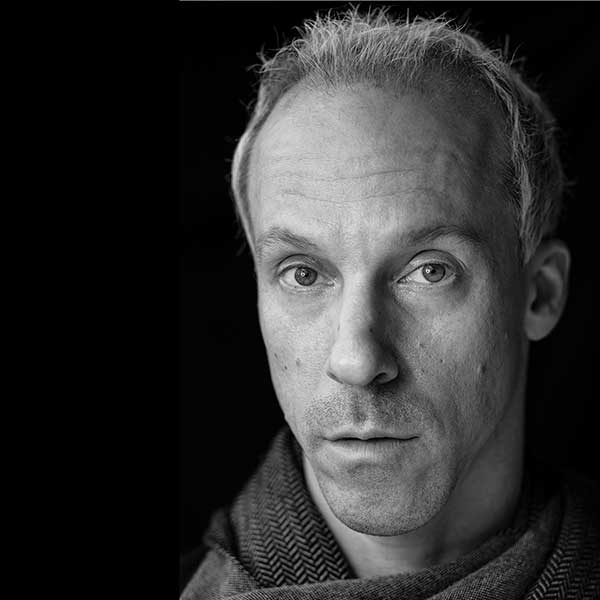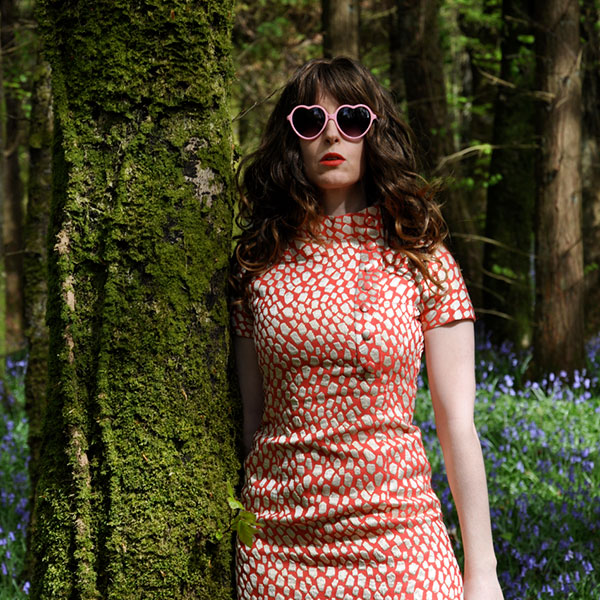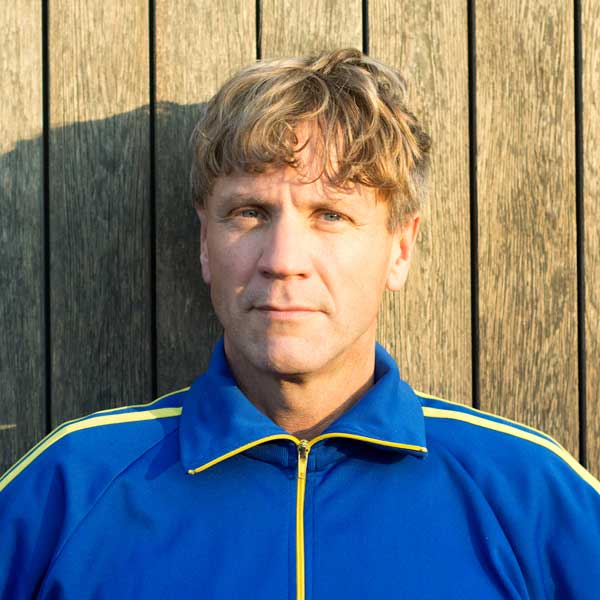“My approach may be seen as a personal critique on what was going on in the media world, going back to other decades and creating bridges to where we are right now.“
The German-Norwegian video artist is a master of subversive storytelling with a sense of hilariously dark humor. For his work, he chooses well-known figures, topics, and scenes primarily from American films and television shows, and recontextualizes those stereotypes by re-enacting them. Melhus mostly uses audio footage as a starting point, reassembling it into new and highly exaggerated narratives, illuminating realities and questions in today’s societies.
He always embodies the characters himself, staging the myths of pop culture in precisely defined costumes, makeup, and settings. In his ongoing work Headshots (since 1991), Melhus collects portraits of each character in the spirit of a growing genealogy. He even empathetically develops them further—for example, the main character of Auto Center Drive (2003) reappears, a little more aged, in The Meadow (2007), and might pop up again in another intriguing story in the future.

Melhus’s works bear the aesthetic intensity of feature films and have been shown and lauded at numerous international film festivals. His oeuvre has also been screened and exhibited in prestigious art institutions around the world, such as the Museum of Modern Art in New York, the Tate Modern, the Centre Pompidou, the Museum Ludwig, and the Pinakothek der Moderne. Melhus regularly shares his inexhaustible knowledge of pop culture and his specific practice with his students, teaching as a professor for Fine Arts and Virtual Realities at the Kunsthochschule Kassel, Germany.
Bjørn Melhus on His Approach
and His Participation in Forecast
What is on my mind right now?
At the moment I’m working on a film that connects the 1969 moon landing, as one of the biggest media events in history, with the most mediatized war in history, the Vietnam War. Today the still-socialist Vietnam embraces capitalism and consumerism. Public space is about to be transformed into private property. Countless luxury resorts are popping up along Vietnam’s coastline. This film is both a documentary and an experimental fiction. It tries to intertwine different layers of media representation and reality. I’m interested in playing with genres and formats. My next upcoming project will be science-fiction film.
Looking toward the future, where do I see questions or challenges that spark my interest?
Our world seems to be in a free fall nowadays. As our reality spins further out of control, we shift more and more into virtual realities and into the representation of what we call the world. I think we’re going through one of the biggest changes in humankind at the moment, mainly caused by the digital revolution that really took off during the last decade of the twentieth century. I’m interested in how our social behavior is changing and how much this is influenced by the use of digital media.
How much loneliness does interconnectivity cause? How much do we design ourselves—or relinquish control to the happy capitalist consumerism that is conquering all parts of the world? And what about love, depression, and our own mortal physicality in times of artificial intelligence? What is the future of a society that is becoming increasingly imbalanced and unequal? What do we actually see? What not? We can’t look toward the future without looking into the present and the past. Our society is built on narratives that are stored in different media. How can we build bridges to connect the past with the future by recontextualizing existing media archives and literature? Isn’t it time to have utopian ideas again? Is there enough air to breathe in a present that has already become a dystopia? Where and how can we position ourselves politically in a rather post-democratic world?
How do I approach my work?
I always approach my work through extensive artistic research. When I become interested in a certain subject, I spend weeks and months digging myself into websites, books, and movies. The collected information serves as a hotbed for the growing project. One should stay curious to all sides and open to all directions a project could develop into. Writing helps to clarify; the media has to follow the content, and not vice versa. The next step is extracting information from archives of popular culture like movies, TV shows, and other sources.
During a long editing process, I try to recontextualize my searched and found excerpts into new multilayered narratives. Some of them can be retraced to their sources and their social political contexts. The last phase is the actual production, postproduction, and presentation. Materiality matters. One should be able not just to understand the medium one is working with—one should love it! I love video editing in which every single frame matters. I love experimenting with moving images and sound. The spectacle of mass media creates an illusion. By recombining some of these illusions or breaking them down to repetitions, moments of “truth” can appear.
And last but not least, humor plays a major role in my artistic practice, as humor can often uncover hidden realities or simply show the naked truth. Humor is a way of stepping out and taking some distance. It can help in the most tragic moments. The most profound problems in the world can be addressed through humor.
Why am I participating in Forecast?
I think Forecast offers a unique possibility of a mentor/mentee encounter due to its open call on a global scale. I’m very curious about the response. The concept promises the possibility of creating an exchange that wouldn’t happen otherwise.
What do I find interesting about the mentoring process? What do I offer a mentee?
After more than 13 years of working with students I’m quite familiar with mentoring.
A mentoring process should be a dialogue. Both the mentor and mentee should be able to listen and articulate themselves. I’m curious and ready to be surprised and inspired and give as much feedback as possible. As a mentor I can bring 30 years of experience into the field I’m working in. For the time of the mentoring process, I’ll guide the mentee through all phases of the production process. I would rather ask questions than deliver answers. The path arises while walking.
Who might apply?
Preferably visual artists whose practices include time-based media, moving images, and installation—but also photography. The media has to follow the content; therefore I‘m actually quite open to how expanded the practice will be. Any kind of interdisciplinarity is welcome but not obligatory. Practically I can give most advice in fields I’m working in myself, but conceptually it can go anywhere. An applicant should be familiar with my body of work and understand it—and be able to define why she or he wants to work with me as a mentor.

Find out more about Bjørn Melhus’s work.





